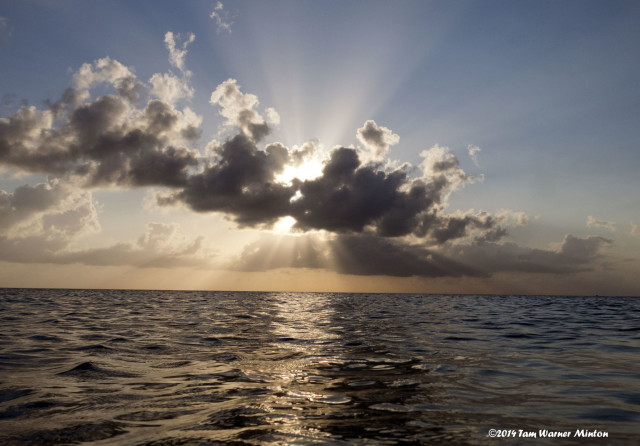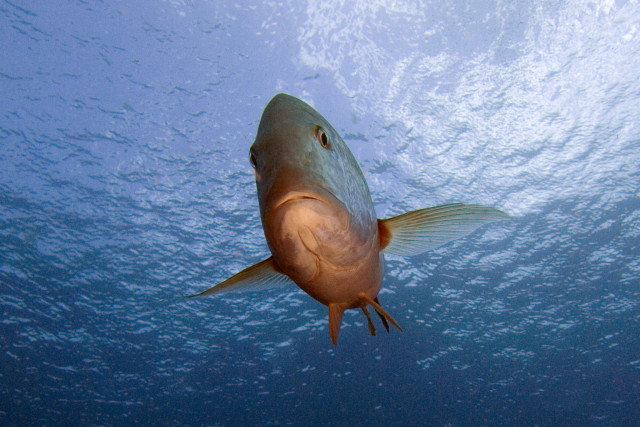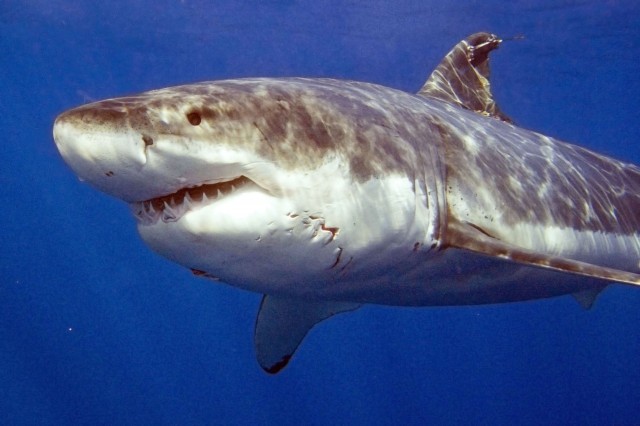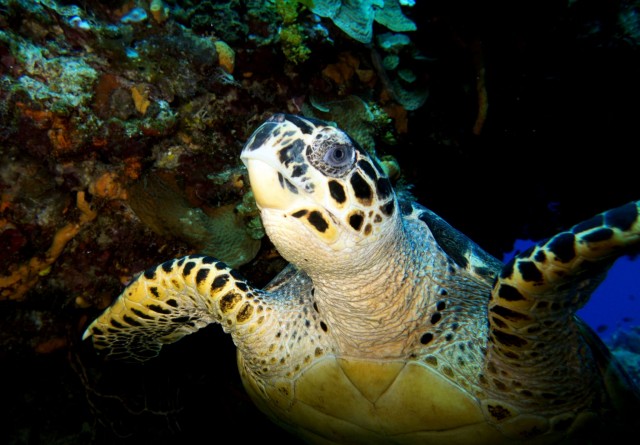Marine Life & Conservation
Our Oceans Are In Critical Danger… Can You Really Make A Difference?

Yes. You can. Each and every one of us can make a difference. How? By making small, but important, choices. Here are some easy examples of how you can start to make a difference:
- Only eat sustainable and responsibly fished seafood. How do you know what is okay to eat? Go to Seafood Watch, the app updated regularly by the Monterey Bay Aquarium and when you go out to eat… check to see which seafood on the menu is sustainable. The lists are separated by area of the country (or world), and given a Green, Yellow, or Red light. Red means the fish is critically overfished. Ever wonder why Red Snapper is hard to find these days? They’ve been overfished, and their populations have critically declined. You can read about it here, at NOAA Fishwatch.
In some areas of the world it is okay to eat Snapper…fresh, line caught snapper….but in others, the populations are not sustainably fished. By using the Seafood Watch app, you can check which fish are okay to eat, and which ones to avoid. Here is the worst cop out of all: well, it’s already dead so I might as well order it. It is the demand for it that drives over-fishing. When people realize that in order to eat Red Snapper in the future they must not order it now… give our fisheries time to recover. Until then, if it is on the Red List, don’t eat or order it!
- Do not eat at restaurants that serve endangered animals. Do not eat at restaurants serving shark. Any kind of shark. Why? Sharks are endangered. If we lose our sharks, our oceans will collapse. That seems pretty dramatic, right? But it is true. Sharks have been around for 450 million years. They are the apex predator (except for humans) in the ocean. They keep marine populations in balance. Sharks tend to eat the older, sicker, slower members of a population, which keeps that population healthier. They keep populations in check, which protects other food sources in the ocean like grasses, plants, corals, mollusks, etc. The foodweb is a constant balancing act, and sharks are a keystone species, meaning that they must be in the ecosystem or that ecosystem will collapse. Sharks kill around 5 people a year. Humans slaughter 75 to 100 million sharks a year, mostly for their fins. For that matter, do not eat turtle, turtle soup, turtle eggs, etc. They are critically endangered!
- When you travel, fly airlines that do not carry endangered species cargo. American Airlines just announced it will no longer carry shark fins as cargo! They join, just to name a few, Air New Zealand, Air Pacific, Cathay Pacific, Singapore Airlines, Jet Airways, and United Airlines. Many, many carriers are joining the crusade to stop transporting ivory, rhino horns, shark fins, manta fins, sea turtles and other endangered species parts. Choose your airline based on this kind of criteria. If they contribute to the shark fin trade, do not fly them. And let them know why you won’t fly them. Use social media to chastise any transport of these endangered species parts.
- When it comes to trading in endangered species, we know the major consumer is China. Other Asian countries are also consumers, but the heart and soul of the shark fin trade is in Hong Kong. The nation of China has stopped serving Shark Fin Soup at state functions… a huge leap forward! Hong Kong has recently followed suit. 95% of shark fins are consumed by Asian countries and go through Hong Kong. The trade is beginning to decline, but we have to keep up the pressure. Shangri-La Hotels and the Peninsula Hotel Group just announced they will no longer serve shark fin soup, bird’s nest, or black moss – all endangered. If you are traveling to Asia, ask the hotel if they sell shark fin soup, any ivory products, or anything with rhino horns. If they do, make the decision not to stay there, and let them know why.
- Don’t buy Chinese medicines with rhino horn, shark liver, or any other endangered species ingredient. Believe me, no scientific study has ever shown that these ingredients cure disease or serve as an aphrodisiac. If there is no demand, the trade will collapse.
Do you know the extent that humans depend upon the ocean to live? The Nature Conservancy points out that the ocean absorbs 1/3 of human produced carbon-dioxide and supplies us with oxygen. Kelp, a plant from the ocean, is used to make salad dressing, dairy products, shampoos and medicines. Compounds from the coral reefs, plants and animals, help treat numerous diseases. Oceans produce 70% more goods and services into our economies and GDPs than land products. Each and every one of us needs the ocean healthy in order to survive. We all have a responsibility.
Rob Stewart, producer of the film Sharkwater, and Revolution, said this recently on his Facebook page: “By 2050, we will live in a world with no reefs, no rainforests, no fish, and 9 billion hungry people.” You might not be here, but if you have children, they will. It is horrifying to think about how catastrophic living in that world would be. There are only a finite amount of resources, and we cannot keep allowing our population to grow without serious consequences to the quality of human life.
Start small, but start soon! If we all make small, good decisions, we can make a big difference. We must all begin now… life depends on it.
For more from Tam, visit www.travelswithtam.com.
Marine Life & Conservation
Shark Trust launches Oceanic 31 Shark Art Auction

 After a two-year tour of UK art galleries, community spaces and aquariums, the Shark Trust’s acclaimed Oceanic31 exhibition takes its final bow at the Royal Geographical Society later this month. And the unique collection of artwork, depicting 31 species of oceanic sharks and rays, donated by 31 artists, is now open for bids from art lovers and shark enthusiasts. The online auction, launched today, will close on the 7th December at 8pm (BST). The money raised will support the Shark Trust Oceanics Programme.
After a two-year tour of UK art galleries, community spaces and aquariums, the Shark Trust’s acclaimed Oceanic31 exhibition takes its final bow at the Royal Geographical Society later this month. And the unique collection of artwork, depicting 31 species of oceanic sharks and rays, donated by 31 artists, is now open for bids from art lovers and shark enthusiasts. The online auction, launched today, will close on the 7th December at 8pm (BST). The money raised will support the Shark Trust Oceanics Programme.
People can now bid on 27 of the artworks by visiting this website:
https://superstars-auctions.com/sharktrustauction
It is a chance to own a beautiful piece of original art and to support the Shark Trust. The timing of the auction also means that these would make a very special Christmas gift for any shark-lover.
- Bigeye Thresher Shark by Janina Rossiter
- Carcharodon carcharias by Jimmy Higgs
- Croc VR 2030 by Tom Mead
- Oceanic Whitetip by ATM
- Silky Street by ScapaJoe
The diversity of pieces mirrors that of the sharks and rays they represent. You can bid on paintings, digital creations, sculptures, mixed media and more. You can pick your favourite artist or species of shark. Or you can select the perfect artwork to make a statement in your home or office. Whichever you choose, you will be supporting the work to protect these amazing animals.
One of the pieces of art has been selected to be auctioned live by Steve Backshall at the For the Love of Sharks event at the Royal Geographical Society in London on the 29th November. In addition to this, two further pieces will be raffled at this event, giving people a chance to win an incredible piece of shark art. For the Love of Sharks is the Shark Trust’s flagship evening. A night to celebrate sharks. Steve Backshall is the headline speaker at this event that will see other prominent shark advocates join him on stage.
Tickets for the event can be snapped up here:
https://thesharktrust.org.uk/Event/flos24
Those that would like to see the Oceanic 31 exhibition have one final chance. It is being displayed at the Pavilion at the Royal Geographic Society from 26th November until the 7th December. Entry is free.
Find out more here:
https://www.rgs.org/events/upcoming-events/oceanic-31
Paul Cox, Shark Trust CEO, Said “This exhibition has given us the opportunity to reach out to a new audience. And inspire more people with the wonderful sharks and rays on which our Big Shark Pledge campaign is based. We are immensely grateful to the 31 artists who have worked so hard to create these works.”
Bid for your favourite Oceanic 31 artwork here:
https://superstars-auctions.com/sharktrustauction
Banner Image: Smooth Hammerhead by Alicia Hayden
Marine Life & Conservation
Meet Steve Backshall in the Bite-Back Prize Draw

Until 28 November, prizes worth a massive £10,000 – including experiences, products and tuition – feature in a line-up of items that can be won for £5 in an online prize draw to celebrate Bite-Back Shark & Marine Conservation’s 20th anniversary and help generate crucial funds for the future.
Top of the list of prizes is the chance to spend time with adventurer and wildlife expert Steve Backshall, a workout session with Nat Geo star Aldo Kane, a kayaking trip alongside white-water expert and diver Sal Montgomery and a Zoom call with ‘shark whisperer’ Cristina Zenato.
On top of that, some of the most admired companies in the diving and scuba industry have been quick to support the charity with fabulous prizes that make the £5 ticket price worth more than just a flutter.
Master Liveaboards, BSAC, Midlands Diving Chamber, Go Freediving and Blue Shark Snorkel have all generously donated experience prizes, while celebrated photographer Alex Mustard has donated a print and artists Scott Gleed and Olivier Leger have donated a sculpture and illustration to help boost the fundraising pot.
Fourth Element has donated Ocean Positive gear and LA watch company Nodus has gifted the charity a stunning dive watch. For land lovers, the charity has included a five star London hotel stay at Bankside Hotel plus a family visit to Longleat Safari Park in the roster of prizes.
Campaign director for Bite-Back, Graham Buckingham, said: “We’ve been overwhelmed with support from companies and individuals that we truly admire and who have supported us on our 20 year journey and we’re truly grateful to them all. While we feel incredibly proud of our achievements over the past two decades – and we are super excited about the next chapter – this prize draw isn’t a vanity project. It represents a real lifeline to our work and important advancements in the global protection of sharks. So we hope divers, dive clubs and even bargain hunters grab some tickets to make this a massive success.”
The charity hopes that the prize draw will generate crucial funds to launch a brand new, ground-breaking, campaign to enrol the public and increase support for the protection of sharks around the world.
To enter the competition visit www.bite-back.com/prizedraw. The prize winners will be announced on 1 December 2024.
-

 News1 month ago
News1 month agoIconic SS United States to become the World’s Largest Artificial Reef
-

 Blogs3 months ago
Blogs3 months agoNovoScuba’s Game-Changing Approach for Dive Store Owners: WE PAY YOU!
-

 News2 months ago
News2 months agoBook Review – 52 Assignments: Underwater Photography
-

 Gear News2 months ago
Gear News2 months agoDYNAMICNORD – New German diving brand enters the British market
-

 News2 months ago
News2 months agoExploring Cenote El Pit: A Diver’s Dream
-

 Gear News2 months ago
Gear News2 months agoTry BARE drysuits (and maybe even win one!) this Friday with Sea & Sea at North West Dive Fest
-

 News3 months ago
News3 months agoComing Soon – 52 Assignments
-

 News3 months ago
News3 months agoSave £200 per person per week at Pole Pole Lodge with Dive Worldwide











